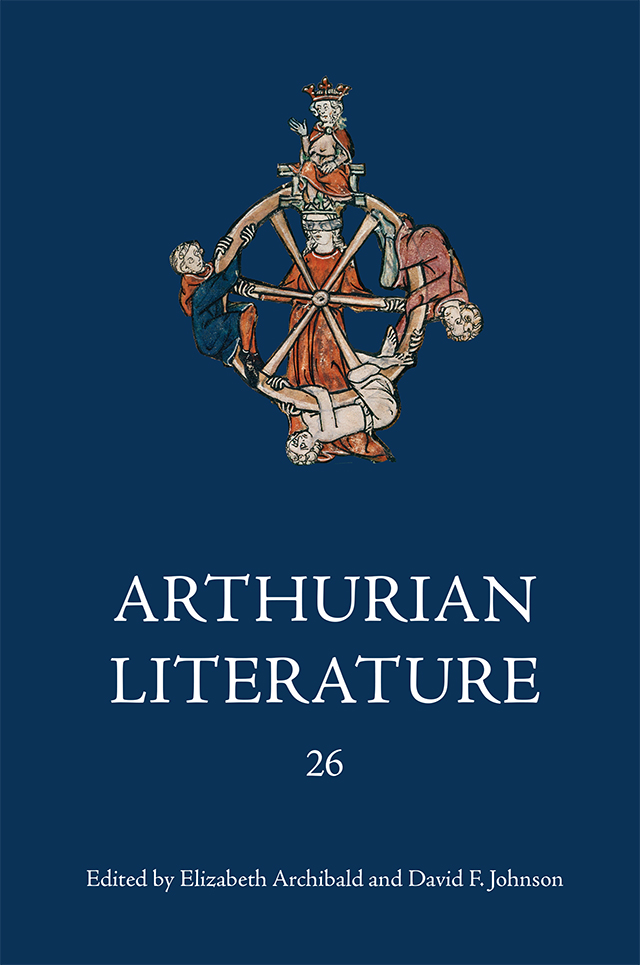Book contents
- Frontmatter
- Contents
- General Editors’ Foreword
- Contributors
- Introduction to The Morte Darthur, Parts 7 and 8
- Malory’s Text of the Suite du Merlin
- Why Arthur at All? The Dubious Arthuricity of Arthur and Gorlagon
- The Aesthetics of Communication: Sterility and Fertility in the Conte del Graal Cycle
- ‘Whyche Thyng Semeth Not to Agree With Other Histories ...’: Rome in Geoffrey of Monmouth and his Early Modern Readers
- Arthurian Texts in their Historical and Social Context
- The Post-Christian Arthur
- The Arthurian Legend in Literature, Popular Culture and the Performing Arts, 2004–2008
General Editors’ Foreword
Published online by Cambridge University Press: 02 March 2023
- Frontmatter
- Contents
- General Editors’ Foreword
- Contributors
- Introduction to The Morte Darthur, Parts 7 and 8
- Malory’s Text of the Suite du Merlin
- Why Arthur at All? The Dubious Arthuricity of Arthur and Gorlagon
- The Aesthetics of Communication: Sterility and Fertility in the Conte del Graal Cycle
- ‘Whyche Thyng Semeth Not to Agree With Other Histories ...’: Rome in Geoffrey of Monmouth and his Early Modern Readers
- Arthurian Texts in their Historical and Social Context
- The Post-Christian Arthur
- The Arthurian Legend in Literature, Popular Culture and the Performing Arts, 2004–2008
Summary
We start this volume with a tribute to the late and much missed Derek Brewer (1923–2008). During his long career he made invaluable contributions to Arthurian scholarship on two fronts: through his own publications, especially on Malory, and through his publishing company D. S. Brewer, founded in 1972. As Boydell ‖ Brewer, it has come to play a crucial part in medieval studies; Arthurian scholars are particularly indebted to him as the ‘onlie begetter’ of the series Arthurian Studies, now up to its 74th volume, and also of this journal.
The essays in the present volume deal with subjects that range from a Latin romance based on Welsh sources to the post-Christian Arthur of modern fiction and film. The first is a reprinting of the introduction to Derek Brewer's edition of the last two tales of Malory's Morte Darthur; first published in 1968, it remains stimulating and informative. The volume continues with Jonathan Passaro's discussion of the source manuscript for Malory's first tale; in a closely argued essay he argues persusively that Malory worked with a version of Cambridge University Library MS add 7071, pointing to numerous verbal and structural parallels, and indeed that this may be the actual manuscript he used. Amanda Hopkins considers the ‘Arthuricity’ of the little-known Latin werewolf romance Arthur and Gorlagon, which deals with metamorphosis, misogyny and bestiality; and Thomas Hinton discusses images of sterility and fertility in the complex continuations of Chretien's Conte du Graal. Moving beyond the Middle Ages, Siân Echard describes some early modern responses to Geoffrey of Monmouth's account of Arthur's dealings with Rome in the writings of antiquarians such as Camden; and Norris Lacy ranges widely over the evolution of the Arthurian legend, linking texts to contexts. Finally, Ronald Hutton considers representations of both Christian and pagan religion in modern novels and cinema, again in relation to cultural context. The volume ends with a supplement on recent additions to Arthurian fiction by Norris Lacy and Raymond Thompson, further evidence, if any were needed, of the perennial popularity of the legend.
Elizabeth Archibald
Bristol, UK
David F. Johnson
Tallahassee, Florida
- Type
- Chapter
- Information
- Arthurian Literature , pp. vii - viiiPublisher: Boydell & BrewerPrint publication year: 2009

